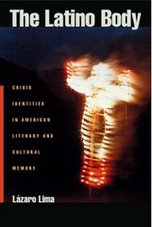
Hundreds of devoted Latino church-goers in San Antonio, Texas, turned out for the unveiling of the city's first brown Jesús.
Depeche Mode's Chicanesca cultural intervention "Your Own Personal Jesus" brought Mexicaneity to post-pubescent heights of legitimation for me in high school. I loved the song for what I thought it represented as much as for its ability to conjure what passed for cool at the time. And how could I not inherit such impoverished imaginings when even our own present is still debating how best to render mythologies of religious origins in hues of brown? Freud's Moses and Monotheism (1939) still has a thing or two to say about Christianity's obsession with the literal referent as opposed to, say, Judaism's conceptual recourse to "the idea," but he's not supposed to be cool to read anymore. I'm glad I don't care as much about cool as I did when "Your Own Personal Jesus" meant more than it should have, and for all the wrong reasons. Still, though the Sergio Leone parody by David Gaham might have gone unnoticed, even by Gaham himself, it strikes me as phat today. Is it ever possible to get away from cool?





